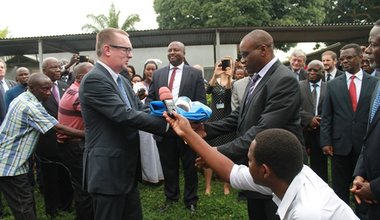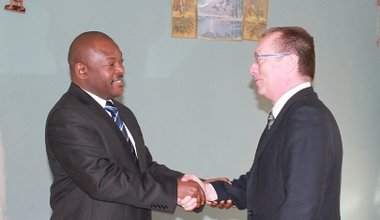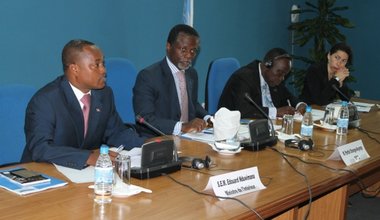Burundi targets respiratory diseases in new UN-backed vaccine scheme
21 September 2011 – Burundi has intensified its efforts in the fight against vaccine-preventable diseases in a United Nations-backed initiative that adds acute respiratory infections to the list of illnesses targeted in regular national childhood immunization campaigns.
"Of all the health interventions available, immunization is one of the most efficient and cost effective, saving millions of children in the world," UN Children's Fund (UNICEF) Representative Souleymane Diabate said in Bujumbura, Burundi's capital, of the introduction of the pneumococcal vaccine against respiratory infections that include pneumococcus-caused pneumonia.
The new vaccine, which was launched during an official ceremony in the province of Kayanza yesterday, joins those against tuberculosis, polio, measles, and the combined immunization against diphtheria, tetanus, pertussis, hepatitis B and haemophilus influenza in the national campaign that covers 320,000 children between birth and 11 months.
This initiative is supported by UNICEF, the UN World Health Organization (WHO) and the public-private Global Alliance for Vaccines and Immunizations (GAVI).
In Burundi, acute respiratory infections, which include pneumonia caused by pneumococcus, constitute the second major cause of under-five child mortality. Pneumococcal infection is responsible for 1.6 million deaths each year in the world, including a million children under five, of whom pneumonia claims 89 per cent, meningitis 6 per cent, and other serious complications 5 per cent. Around 90 per cent of these deaths occur in developing countries.
Burundi is one of a handful of African nations to take this step forward. The vaccine is already being administered in developed countries with significant results in the reduction of the number of cases of pneumonia caused by pneumococcus.
"Immunization is neither a favor nor a privilege that only certain children have the chance to receive," Mr. Diabate said. "Immunization is a right to be fulfilled for all children in the world."
 UN
UN





